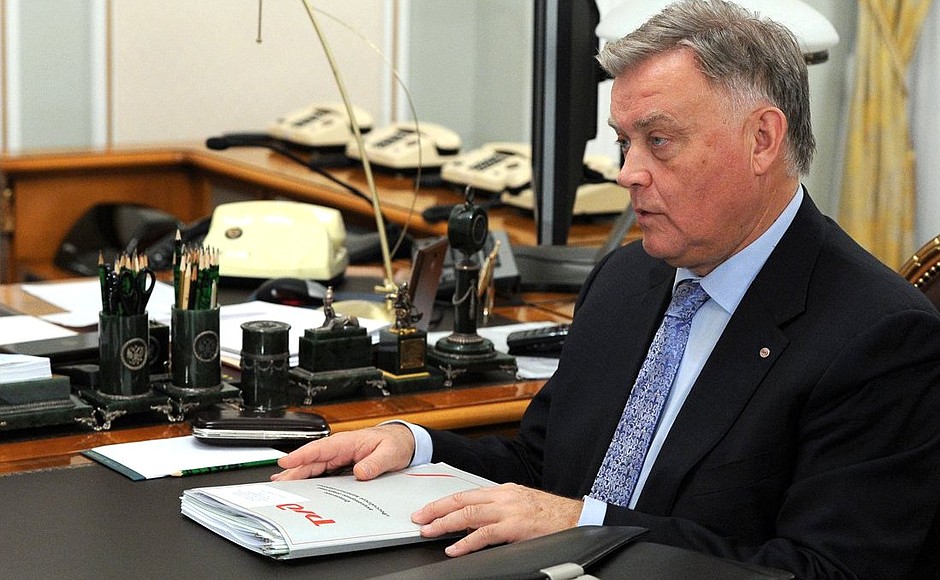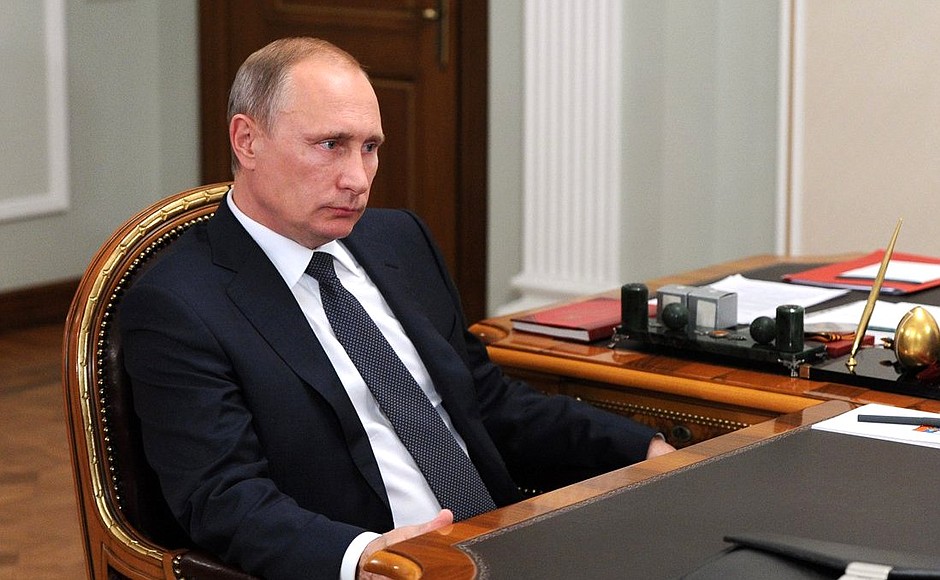President of Russia Vladimir Putin: Good evening, Mr Yakunin. How is the company doing?
Russian Railways CEO Vladimir Yakunin: I would first like to thank you for the opportunity to brief you on our work.
We have just closed the first ten months of the year and at our shareholders’ meeting today, we discussed the prospects for our investment programme and made plans for the next period.
I would like to begin by thanking you and the Government for making the final decision to implement the investment projects on the eastern track – the modernisation of the BAM and Trans-Siberian railways – and finding the resources and sources of funding. This clearly enhances the development potential, which, in turn, will have a significant effect on the economy as a whole, because it is a known fact that every ruble invested in infrastructure brings the economy 1.46 rubles. No other industry can achieve this.
Given the tough situation in the global market, which you have mentioned, we are forced to use every available method to cut our own costs as you encouraged us to do, and to carefully select the markets where we buy the necessary equipment.
I would like to inform you that of the total amount that we spend on acquiring resources, materials and machinery, including imported equipment that is not produced locally, we spend only about 3 percent on imports.
Vladimir Putin: Is that out of the overall purchasing volume?
Vladimir Yakunin: Yes, of the overall amount allocated for purchasing import accounts for only about 3, maybe 4 percent. We make a lion’s share of our purchases locally. This trend has developed over years, and now, when the tough market conditions impose a different set of rules, we make it our priority.
Naturally, as I have said, there are products, like high-speed trains or locomotives, that we do not make locally yet. Money has been earmarked for this purpose. However, in the overall purchasing strategy this is an insignificant factor price-wise.
I have to note here that practically all the regions of the country are interested in having their companies cooperate with Russian Railways, to have us buy their products. This stimulates cooperation with the regions.
Also important, of course, is the fact that, as you may know, we are constantly working to increase productivity and cut costs.
I can inform you that over the year, given all our macroeconomic data, unit cost will be reduced by 0.7 percent.
(Further the discussion focussed on labour productivity and pay rates at Russian Railways.)
Vladimir Yakunin: There is one more thing I would like to draw your attention to. We are persistently implementing the resource-saving programme. This is something you focussed on as well. I would like to inform you that in the ten years of the company’s existence, its energy efficiency has gone up by 23.5 percent, and these are true figures, I assure you. As for this year, we have reduced our costs by about 2.5 percent, though we are the largest consumer of fuel and energy resources in the country: we consume about 9 percent of the diesel fuel and about 5 percent of the power for traction. Therefore, on a corporate scale the 2.5 percent spell real economy. And we intend to continue in the same vein.
Vladimir Putin: Fine, thank you. What about loading and freight traffic?
Vladimir Yakunin: As for freight traffic, Mr President, the situation on the foreign markets and the situation that has developed due to the limitation of shipments to and from Ukraine have already caused a 0.9 percent reduction this year as compared to the previous year. The overall annual decline will probably amount to 1.2 or 1.8 percent.
Vladimir Putin: These are not critical figures; however, they reflect the tariff rates, which is also something you need to consider. Many shippers shift to automobile transport, or sea and river transportation.
Vladimir Yakunin: We do not see this now. There are various reasons behind choosing alternative means of transportation: thus, for river transportation this has to do with the seasons. Actually, winter has done us a favour: we are having a sharp increase in shipments of oil and petroleum products, which never happened at this time in previous years. This is due to the cold winter. As for automobile transport, the problem, I believe, lies deeper. Our opinion, if you do not mind if I voice it, is that there is strict regulation, legislative regulation on railways, while it does not apply to a private automobile operator. Moreover, bearing in mind that the highways were designed to carry a certain maximum carload (this is something the governors spoke about at the recent State Council meeting) while cargos are shipped in huge 70-ton haul trucks, highways get damaged, but it makes shippers choose in favour of automobile transportation.
Thus, we discussed this issue with the Sverdlovsk Region Governor, and we are very grateful to the local authorities: they started weighing automobiles and this gave us an additional 2.5 million tons of cargo over the year. This is only in one region.
What we have here is a complex issue. We are working on it with the Transportation Ministry and with other Government members. We will do our best, Mr President, not to let cargos be redirected to other means of transportation.
Vladimir Putin: This needs to be achieved through better quality services, competitive prices and competitive shipment rates, among other things.
Vladimir Yakunin: We will do our best.
<…>



